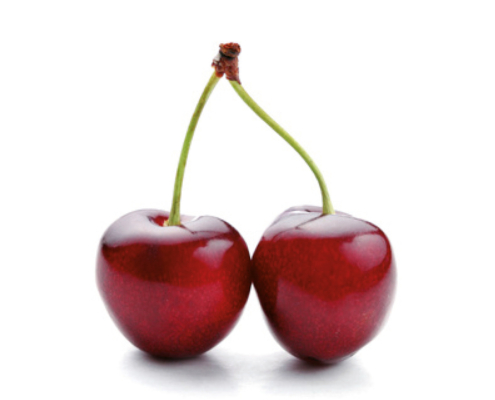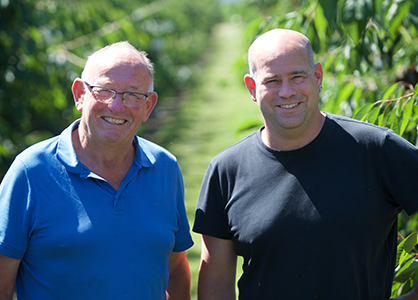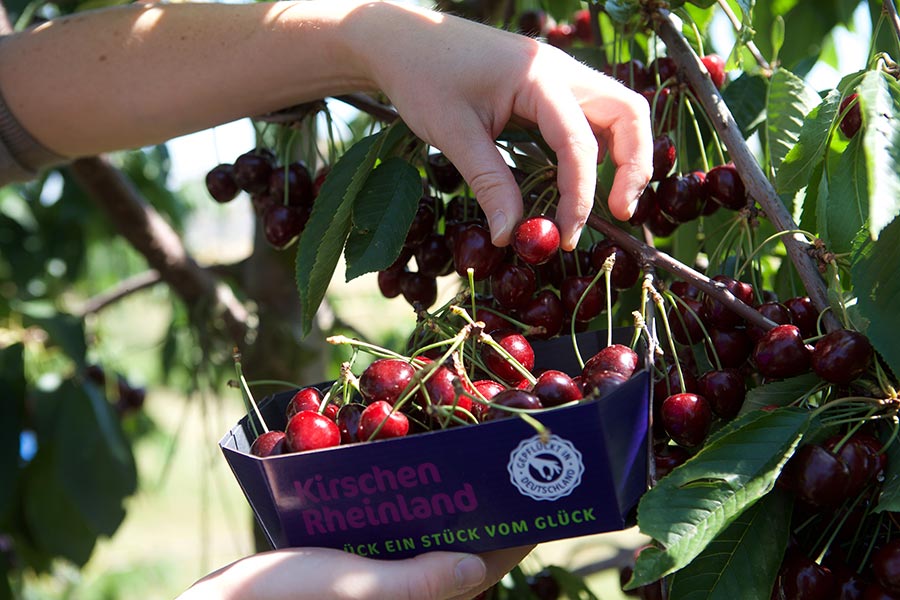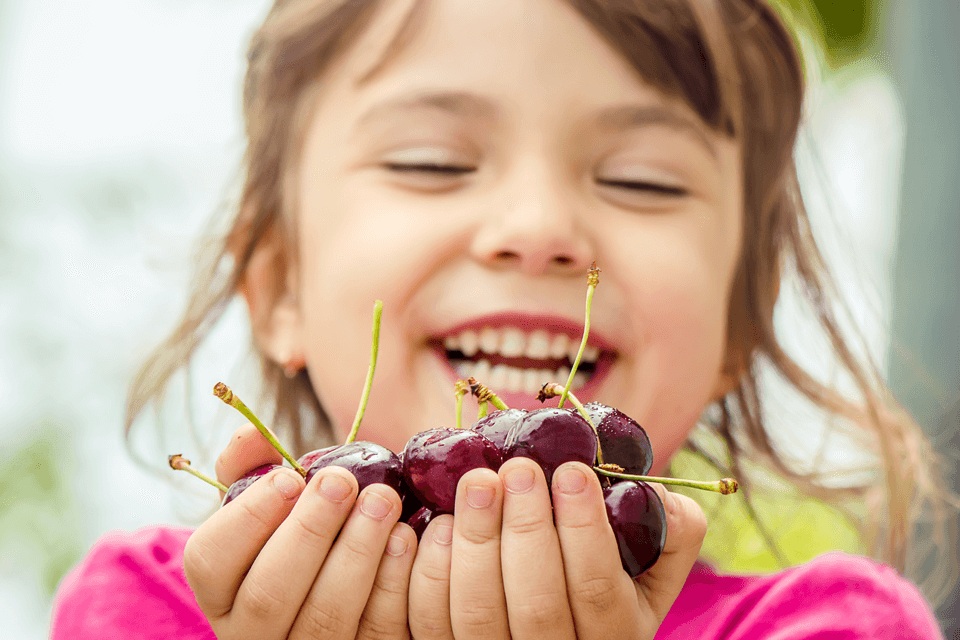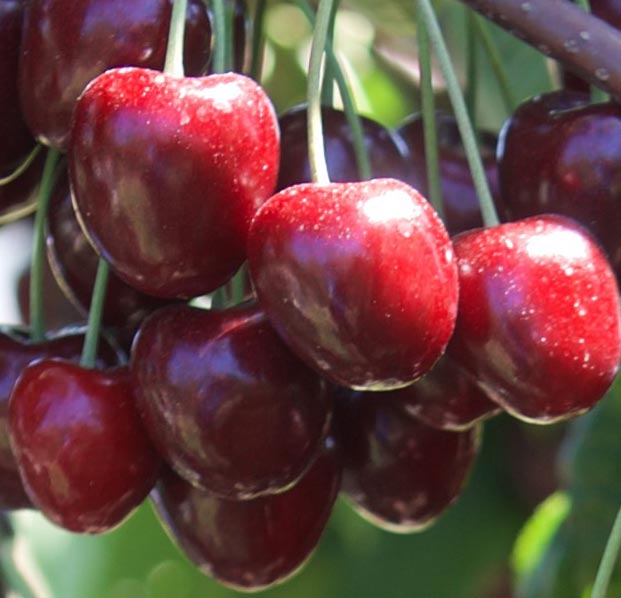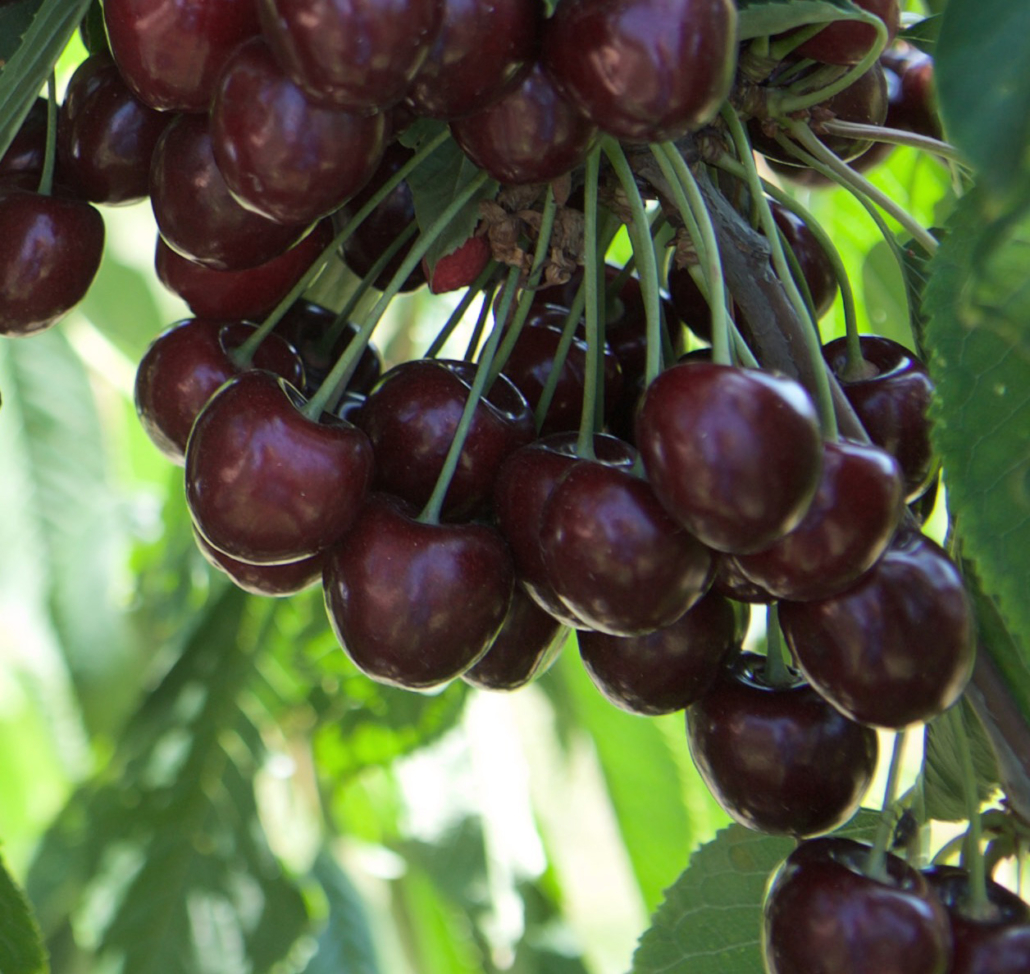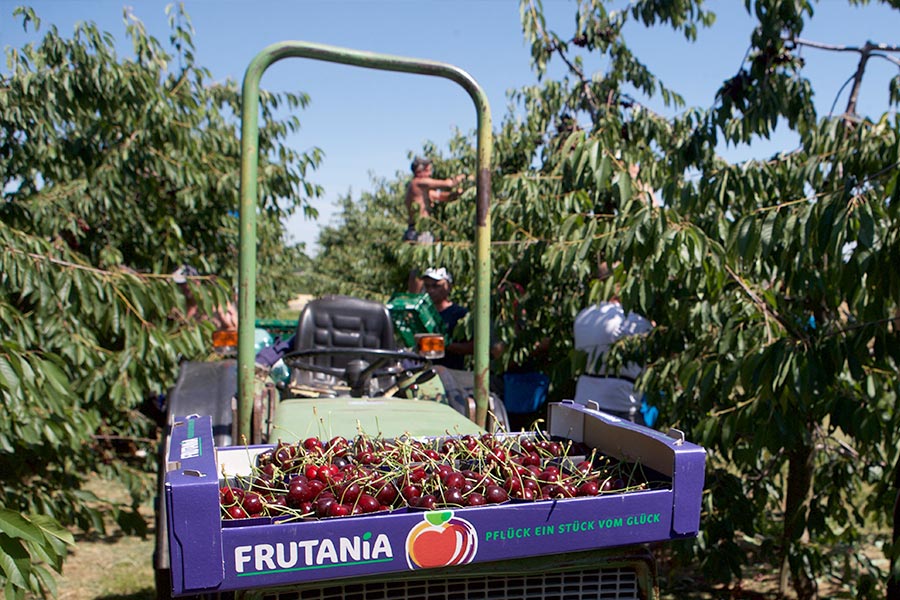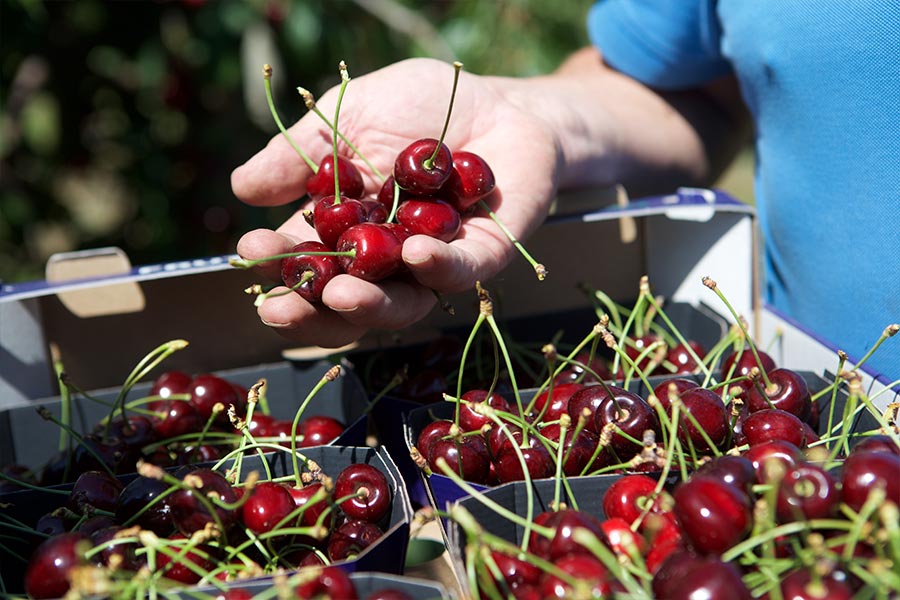Our cherries
Our cherries are juicy, sweet, plump, aromatic and firm little fruits with red pulp – a true happiness!
Peter Krupp, one of our growers for cherries:
“What makes me happy is bringing in the harvest in the summer – plump, fat, sweet cherries and, most importantly, working outside all year long, too!”
The fifth generation of the Krupp family has been farming in the county in the immediate vicinity of the Ahr Valley since 1880. Spoiled by the sun, cherries, pears and plums thrive here today under the hand of Peter and Martin Krupp. The focus is on integrated-controlled cultivation of cherries and plums, which ripen in picturesque plantations.
Cultivation methods
Young cherry trees are planted in the fall and in the open ground. For protection, they are increasingly given rain caps, because the fruit can burst in the rain. Cherry is a permanent crop, which requires very good soil with a good water supply and lives about 15 years.
Harvest
The harvest season begins in early July and then lasts 6-8 weeks.
Picking
Ripe cherries are picked by hand and usually with stems.
Maturity levels
The outer cherries ripen first, while the inner ones ripen afterwards. Therefore, cherries are picked in two passes.
Our varieties
Early varieties: Belise | Merchant | Sumbigo | Samba
Medium-early varieties: Canada Giant Grace Star | Vanda | Starking | Carmen | Satin
Medium late varieties: Early Korvik | Schneiders | Giorgia | Sumbola | Tamara | Sylvia | Oktavia | Kordia | Henriette | Ruby
Late varieties: Skeena | Regina | Lapins | Penny | Sweetheart
Frutania cherries
Through intensive cooperation with our producers from all major growing regions in Germany, we offer a long, natural season with a correspondingly long harvest window. We have access to large quantities, are largely independent of weather conditions due to a high proportion of protected cultivation and can plan on a daily basis. We cover the early season with high quality goods from Greece and Spain.
In Germany, our very long, natural season stretches from the Palatinate, the Koblenz area, the Rhineland to the late cherry harvest at Lake Constance and in the Alte Land.
Season beginning of May until beginning of August
Consumer tips
Purchasing
Cherries taste best in season, otherwise they may disappoint with a watery taste. One of the hallmarks of ripe, delicious cherries is their plump shape, which at the same time says something about freshness. Color, on the other hand, need not be a clear indication of sweetness. Dark cherries taste particularly sweet and aromatic, but depending on the variety, light varieties can also bring the same qualities.
Storage
Cherries that are eaten unprocessed will keep for one to two days in a foil bag in the refrigerator. But they should be washed just before eating, otherwise they rot very quickly. Sweet or sour cherries can also be canned or frozen. Incidentally, frozen cherries can be better pitted.
Preparation
Cherries taste fresh, refine cakes such as the classic Black Forest cake, are suitable for fruit ice cream, jams, red fruit jelly, chutneys and fruit juices. They are also often processed into fruit wines, brandies and liqueurs.
The cherry
Small encyclopedia
Cherries belong to the summer. And the best part – cherries not only taste delicious, they are also very healthy. Sweet cherries belong to the stone fruit and have a dark red to black color with strong, spherical fruits.
The cherry is descended from the bird cherry that grows wild in the Caucasus. However, the home of the cultivated varieties is considered to be Asia Minor and especially the area around the Black Sea. From there, the Roman general Lucullus brought the first fruits to Rome in 74 B.C., and it was the Romans who brought the sweet cherry to northern and central Europe. In Japan, no other tree is as revered as the cherry, and for over 1,000 years they have celebrated the famous Cherry Blossom Festival.


